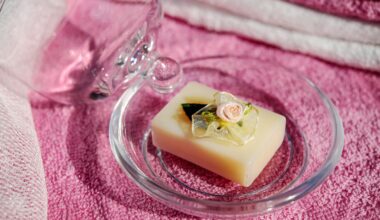Before consuming fenugreek tea, it is important to know the side effects and benefits of the herb. Taking too much of the herb can have serious adverse effects and interactions with some medications. For example, people who suffer from bleeding disorders should not take fenugreek. It can also interact with blood-thinning drugs and anticoagulants. You can look out for signs of these interactions, including dark stools and easy bruising. People with diabetes should also avoid fenugreek as it may interact with their medications.
Boosts Breast Milk Production
One of the best ways to boost breast milk production is by eating more natural foods. This way, your breasts will be nourished, and your baby will benefit from a constant supply of milk. Natural foods do not work instantly but will help improve the quality of your milk over time. A few tips to try include drinking coconut water, adding it to smoothies, and drinking seltzer.
Another way to boost your supply is to eat plenty of rice. Local rice, also known as ‘ofada rice’, is high in nutrients and has fewer calories than white rice. Eating this type of rice may also help you shed pregnancy fat. Also, dark leafy vegetables are great for milk production. These vegetables are high in calcium and phytoestrogens.
Lowers Blood Sugar Levels
Drinking fenugreek tea has a number of health benefits for people with diabetes. The seeds are a rich source of soluble fiber, which helps slow the digestion process and absorption of carbohydrates. It can also help protect the liver from toxins.
Fenugreek seeds can also be eaten. They can be ground into a powder and added to rice dishes or certain pickles. The seeds are also effective when used in combination with other herbs to boost their benefits. For instance, fenugreek can be used to make fenugreek sprouts. Soak the seeds overnight and they will sprout within two or three days. Fenugreek sprouts are high in fiber and can help regulate blood sugar levels.
Has Anti-Inflammatory Properties
Fenugreek tea is an herb that has powerful anti-inflammatory properties. The herb is widely used in Indian, Egyptian, and Middle Eastern cuisine. In addition to its anti-inflammatory properties, it also helps alleviate the symptoms of anxiety and stress. The medicinal properties of fenugreek have been supported by several studies.
Fenugreek can be eaten or taken as tea. It is also used in soaps, cosmetics, and even as a spice. It is rich in antimicrobial, anti-inflammatory, antioxidant, and antitumorigenic properties. It is native to the Mediterranean and the Middle East but is also used extensively in the Indian subcontinent. Its leaves can be used as a spice, and the seeds can be ground into a powder to be used in cooking and in teas.
Aids In Weight Loss
Using fenugreek seeds is a good way to lose weight and reduce belly fat. They are a natural appetite suppressant and boost metabolism. You can also add them to salads. The seeds are high in fiber and nutrients and will help you lose weight. Be careful though, as the seeds can be hot and may cause digestive problems.
Fenugreek seeds contain soluble fiber, which helps reduce cholesterol levels and regulate blood sugar levels. They also help improve digestion and flush out harmful toxins in the body. In addition, fenugreek seeds contain vitamins K and C, which can improve the look of skin and reduce dark under-eye circles. They are also known to ease menstrual cramps.
Helps With Diabetes
Fenugreek tea is a great option to help you reduce blood glucose levels. You can make it at home with fenugreek seeds and water. You can also add honey to the tea for more beneficial effects. Drink it two times a day for maximum results.
As an herbal medicine, fenugreek is known to improve insulin sensitivity and decrease blood sugar levels. It also delays gastric emptying, which reduces glucose absorption. You should consult with your physician before taking fenugreek, as it can interact with other medications.
Helps With Ovarian Cysts
A recent study found that fenugreek seed extract reduced the volume of ovarian cysts. The results were encouraging as 40% of women with ovarian cysts experienced a decrease in cyst size. Also, the treatment improved menstrual cycles and decreased primary infertility.
While fenugreek tea is not a cure for ovarian cysts, it can help regulate your menstrual cycle. The extracts found in fenugreek seed extract are believed to regulate insulin and androgen levels in the body. Fenugreek may also be effective at regulating the length and time of your menstrual cycle.
Also Read: Is Ginger Ale Good For You? Everything You Need To Know
Conclusion
Fenugreek tea is a natural remedy used to treat various health conditions, including diabetes, high blood pressure, and heart disease. But it is important to drink the tea with caution. It can lower your blood sugar and can even cause lightheadedness or fainting. Therefore, you should consult your doctor before consuming it.








